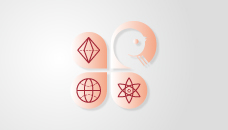[1] WEI Y M, CHAI J R, QIN Y, et al. Effect of fly ash on mechanical properties and microstructure of cellulose fiber-reinforced concrete under sulfate dry–wet cycle attack[J]. Constr Build Mater, 2021, 302: 124207.
[2] XIONG Q X, TONG L Y, MEFTAH F, et al. Improved predictions of permeability properties in cement-based materials: A comparative study of pore size distribution-based models[J]. Constr Build Mater, 2024, 411: 133927.
[3] MA H Y, GONG W, YU H F, et al. Durability of concrete subjected to dry-wet cycles in various types of salt lake brines[J]. Constr Build Mater, 2018, 193: 286–294.
[4] YU Y G, GAO W, FENG Y, et al. On the competitive antagonism effect in combined chloride-sulfate attack: A numerical exploration[J]. Cem Concr Res, 2021, 144: 106406.
[5] SCHERER G W. Stress from crystallization of salt[J]. Cem Concr Res, 2004, 34(9): 1613–1624.
[6] XIONG Q X, MEFTAH F. Determination on pore size distribution by a probabilistic porous network subjected to salt precipitation and dissolution[J]. Comput Mater Sci, 2021, 195: 110491.
[7] TONG L Y, XIONG Q X, ZHANG Z D, et al. A novel lattice model to predict chloride diffusion coefficient of unsaturated cementitious materials based on multi-typed pore structure characteristics[J]. Cem Concr Res, 2024, 176: 107351.
[10] RODRIGUEZ-NAVARRO C, DOEHNE E, SEBASTIAN E. How does sodium sulfate crystallize? Implications for the decay and testing of building materials[J]. Cem Concr Res, 2000, 30(10): 1527–1534.
[11] XIONG Q X, TONG L Y, ZHANG Z D, et al. A new analytical method to predict permeability properties of cementitious mortars: The impacts of pore structure evolutions and relative humidity variations[J]. Cem Concr Compos, 2023, 137: 104912.
[12] COUSSY O. Deformation and stress from in-pore drying-induced crystallization of salt[J]. J Mech Phys Solids, 2006, 54(8): 1517–1547.
[13] CORRENS C W, STEINBORN W. Experimente zur messung und erklrung der sogenannten kristallisationskraft[J]. Z Fr Kristallogr Cryst Mater, 1939, 101(1–6): 117–133.
[14] ESPINOSA-MARZAL R M, SCHERER G W. Advances in understanding damage by salt crystallization[J]. Acc Chem Res, 2010, 43(6): 897–905.
[16] NAILLON A, JOSEPH P, PRAT M. Ion transport and precipitation kinetics as key aspects of stress generation on pore walls induced by salt crystallization[J]. Phys Rev Lett, 2018, 120(3): 034502.
[17] YUE J W, LI Y, LUO Z X, et al. Study on deterioration law and mechanism of gray brick due to salt crystallization[J]. Materials, 2022, 15(8): 2936.
[18] LEE B Y, KURTIS K E. Effect of pore structure on salt crystallization damage of cement-based materials: Consideration of w/b and nanoparticle use[J]. Cem Concr Res, 2017, 98: 61–70.
[19] YIN G J, LANG Y J, MIAO L, et al. Numerical simulation on the crystallization-induced mechanical response in hardened cement paste under external sulfate attack[J]. Ocean Eng, 2023, 276: 114314.
[20] HAIN M, WRIGGERS P. Computational homogenization of micro-structural damage due to frost in hardened cement paste[J]. Finite Elem Anal Des, 2008, 44(5): 233–244.
[21] THAULOW N, SAHU S. Mechanism of concrete deterioration due to salt crystallization[J]. Mater Charact, 2004, 53(2–4): 123–127.
[22] ESPINOSA-MARZAL R M, SCHERER G W. Mechanisms of damage by salt[J]. Geol Soc Lond Spec Publ, 2010, 331(1): 61–77.
[23] YANG J B, ZHAO G Q, YIN H, et al. Effects of C-S-H gel surface structure on sodium chloride evaporation crystallization in C-S-H gel nanopores with molecular dynamics analysis[J]. Appl Surf Sci, 2023, 639: 158159.
[24] DESARNAUD J, DERLUYN H, CARMELIET J, et al. Metastability limit for the nucleation of NaCl crystals in confinement[J]. J Phys Chem Lett, 2014, 5(5): 890–895.
[25] YU F, SUN D Q, HU M J, et al. Study on the pores characteristics and permeability simulation of pervious concrete based on 2D/3D CT images[J]. Constr Build Mater, 2019, 200: 687–702.
[28] LIU H J, BU Y H, NAZARI A, et al. Low elastic modulus and expansive well cement system: The application of gypsum microsphere[J]. Constr Build Mater, 2016, 106: 27–34.
[29] CHEN S J, DUAN W H, LI Z J, et al. New approach for characterisation of mechanical properties of cement paste at micrometre scale[J]. Mater Des, 2015, 87: 992–995.
[30] CHEN X D, WU S X, ZHOU J K. Experimental and modeling study of dynamic mechanical properties of cement paste, mortar and concrete[J]. Constr Build Mater, 2013, 47: 419–430.
[31] FUENKAJORN K, PHUEAKPHUM D. Effects of cyclic loading on mechanical properties of Maha Sarakham salt[J]. Eng Geol, 2010, 112(1–4): 43–52.
[32] STEIGER M. Crystal growth in porous materials—II: Influence of crystal size on the crystallization pressure[J]. J Cryst Growth, 2005, 282(3/4): 470–481.




